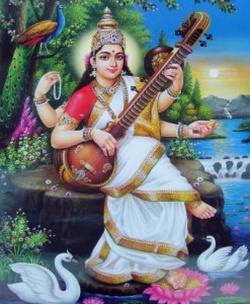Difference between revisions of "Why Buddhist men shouldn’t be ordained"
m (Text replace - "1" to "1") |
|||
| Line 23: | Line 23: | ||
2. The [[Suttas]] tell us that the [[Buddha]] was betrayed and assaulted by [[Devadatta]], a man. In addition, it was male [[monastics]] who were behind the schism at [[Kosambi]]. Another man, Udayin, was so badly behaved as a [[monk]] that many rules had to be made to keep his male impulses to violence and sexuality in check. Indeed, it was the unbridled sexual [[desires]] of a man, Sudinna, which forced the [[Buddha]] to [[change]] his [[mind]] and lay down the rules for [[monks and nuns]]. Thanks, men. | 2. The [[Suttas]] tell us that the [[Buddha]] was betrayed and assaulted by [[Devadatta]], a man. In addition, it was male [[monastics]] who were behind the schism at [[Kosambi]]. Another man, Udayin, was so badly behaved as a [[monk]] that many rules had to be made to keep his male impulses to violence and sexuality in check. Indeed, it was the unbridled sexual [[desires]] of a man, Sudinna, which forced the [[Buddha]] to [[change]] his [[mind]] and lay down the rules for [[monks and nuns]]. Thanks, men. | ||
| − | + | 1. Men can still be involved in [[religious]] activities, even without [[being]] [[ordained]]. They can cook, wash dishes, do laundry, and make nice things to offer to women. In this way they can make [[merit]] and hope to be [[reborn]] as a woman. | |
</poem> | </poem> | ||
{{R}} | {{R}} | ||
Revision as of 16:24, 8 September 2013
By Sujato
Just because I can’t resist.
10. A man’s place is in the workforce, where he can earn money to donate to nuns.
9. Mens’ avoidant and primitive ways of communicating and dealing with emotions make them unsuitable for community living.
8. The physique of men indicates that they are more suited to such tasks as chopping down trees and wrestling mountain lions. It would be “unnatural” for them to pursue a spiritual calling. Indeed, the broad shoulders and “top-heavy” physique of “real men” can cause them to topple over in meditation. This creates a crashing noise that distracts the women, whose “pear-shaped” bodies have clearly evolved for sitting still for long periods of time.
7. Studies have shown that men are more violent and more promiscuous than women. In addition, men drink more. They therefore have stronger unwholesome roots of greed, hatred, and delusion due to their bad kamma in past lives. This makes it impossible for them to keep even the five precepts, still less live as monastics. These roots can be weakened if men make merit by giving gifts to the more evolved beings, females.
6. Men are too emotional to be monks. Their conduct at football games and boxing matches demonstrates this.
5. When male monks wear their robes over one shoulder, they expose their muscular and commanding upper body. This distracts women devotees, and is therefore inappropriate in a monastery.
4. Monastics need to nurture their congregations. But this is not a traditional male role. Throughout history, women have been recognized as not only more skilled than men at nurturing, but also more fervently attracted to it. This is because they are naturally more compassionate and wiser. This makes them the obvious choice for ordination.
3. Men are prone to violence. No really masculine man wants to settle disputes except by fighting about them. Thus they would be poor role models as well as dangerously unstable in positions of leadership.
2. The Suttas tell us that the Buddha was betrayed and assaulted by Devadatta, a man. In addition, it was male monastics who were behind the schism at Kosambi. Another man, Udayin, was so badly behaved as a monk that many rules had to be made to keep his male impulses to violence and sexuality in check. Indeed, it was the unbridled sexual desires of a man, Sudinna, which forced the Buddha to change his mind and lay down the rules for monks and nuns. Thanks, men.
1. Men can still be involved in religious activities, even without being ordained. They can cook, wash dishes, do laundry, and make nice things to offer to women. In this way they can make merit and hope to be reborn as a woman.

